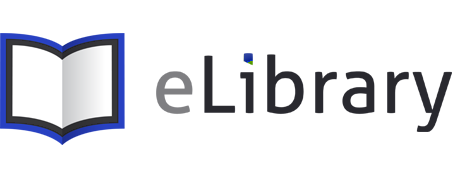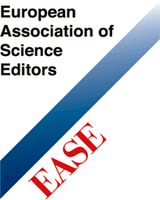Editorial Policies
- Aims and Scope
- Sections
- Peer Review Process
- Publication Frequency
- Archiving
- Author Self-Archiving
- Delayed Open Access
- Issue Purchase
- Article Purchase
- Indexing
- Publishing Ethics
- Publication Fee
Aims and Scope
The scientific-practical journal " Journal of Experimental and Clinical Surgery" is a modern periodical established to support and develop high-tech medical care within the framework of the national "Health Technologies" project.
Modern surgery is rapidly evolving, introducing innovative diagnostic and treatment methods, which necessitates the updating of existing clinical approaches. In this context, continuous professional education and the prompt exchange of relevant scientific information among specialists are of particular importance. The journal serves as a platform for professional dialogue in this field.
Published by the Voronezh N.N. Burdenko State Medical Academy, the journal draws on the traditions and authority of the Voronezh Surgical School, recognized at national and international levels. Its publications include original scientific articles covering current issues in general and specialized surgery, as well as literature reviews and materials dedicated to promising innovations and improvement proposals.
The " Journal of Experimental and Clinical Surgery" is an important source of new knowledge and methodological recommendations for practicing surgeons, healthcare administrators, researchers, and medical students striving for leadership in modern medical science.
Sections
Short articles
Original articles
Experience
New in surgery
Cases from practice
Review of literature
Преподавание хирургии
Memorials
Некролог
ANNIVERSARY
History of surgery
Peer Review Process
A double-blind peer review method is mandatory for selection processing of all scientific manuscripts submitted to the editorial stuff of "Journal of experimental and clinical surgery". This implies that neither the reviewer is aware of the authorship of the manuscript, nor the author maintains any contact with the reviewer.
- Members of the editorial board / editorial council and leading Russian and invited independent international experts in corresponding areas of life sciences perform peer reviews. Editor-in-chief, deputy editor-in-chief or science editor choose readers for peer review. We aim to limit the review process to 2-4 weeks, though in some cases the schedule may be adjusted at the reviewer’s request.
- Reviewer has an option to abnegate the assessment should any conflict of interests arise that may affect perception or interpretation of the manuscript. Upon the scrutiny, the reviewer is expected to present the editorial board with one of the following recommendations:
- "It is recommended to publish the manuscript as is". At the positive review article is submitted for a meeting of editorial board for the solution of a question of the publication.
- "It is recommended taking into account corrections following the remarks noted by the reviewer". If the reviewer has recommended any refinements, the editorial staff would suggest the author either to implement the corrections, or to dispute them reasonably. Authors are kindly required to limit their revision to three weeks and resubmit the adapted manuscript within this period for final evaluation. The corrected article goes for repeated reviewing. At the same time the reviewer draws the conclusion about a possibility of its publication. In case of a positive conclusion an article will be submitted for an editorial board meeting to receive a decision. In Case of negative conclusion from the reviewer the manuscript will be sent for evaluation to another reviewer.
- "It isn't recommended". At two negative reviews to the author the motivated refusal in the publication of work certified by the editor-in-chief or his deputy goes. - We politely request that the editor be notified verbally or in writing should the author decide to refuse from publishing the manuscript. In case the author fails to do so within 3 weeks since receiving a copy of the initial review, the editorial board takes the manuscript off the register and notifies the author accordingly.
- If author and reviewers meet insoluble contradictions regarding revision of the manuscript, the editor-in-chief resolves the conflict by his own authority.
- Content of each issue of the journal should be approved by editorial board with taking into account all reviewers opinions for each article. The editorial board reaches final decision to reject a manuscript on the hearing according to reviewers’ recommendations, and duly notifies the authors of their decision via e-mail. The board does not accept previously rejected manuscripts for re-evaluation.
- Upon the decision to accept the manuscript for publishing, the editorial staff notifies the authors of the scheduled date of publication.
- Kindly note that positive review does not guarantee the acceptance, as final decision in all cases lies with the editorial board. By his authority, editor-in-chief rules final solution of every conflict.
- Original reviews of submitted manuscripts remain deposited permanently (not less than 5 years).
- Manuscript reviews are not published. Reviews can be sent to the Ministry of Education and Sciense of Russian Federation in case of query.
Publication Frequency
The journal issues quarterly - 4 times per year. Circulation of the print version is 1000 copies. Electronic version of the journal is available worldwide.
Archiving
This journal utilizes the LOCKSS system to create a distributed archiving system among participating libraries and permits those libraries to create permanent archives of the journal for purposes of preservation and restoration. More...
Delayed Open Access
The contents of this journal will be available in an open access format 36 month(s) after an issue is published.
Issue Purchase
Readers without a subscription may still purchase individual issues. The following payment options and fees are available.
Access for an Issue: 110.00 (USD)
You can purchase the access for all articles published in one issue. Access to articles will be provide for an unlimited time.
Access to issue allows you to read, download and print full text (PDF and HTML) of all articles, but does not allow to distribute, copy or reproduce articles materials until the end of the embargo period (3 years) since the publication of the article).
Article Purchase
Readers without a subscription may still purchase individual articles. The following payment options and fees are available.
Access for an Article: 16.00 (USD)
You can purchase the access for the article to read, download and print its fulltext (PDF, HTML). Access to article will be provide for an unlimited time.
Purchased access does not allow to distribute, copy or reproduce article's materials until the end of the embargo period (3 years) since the publication of the article).
Indexing
Articles in "Journal of experimental and clinical surgery" journal are indexed by several systems:
- Russian Science Citation Index (RSCI) by “Electronic Scientific Library” foundation (elibrary.ru)
- Google Scholar
- Socionet
- Ulrich's Periodicals Directory
- WorldCat
- Cyberleninka
The Journal is included in the list of scholarly journals and publications recommended by State Commission for Academic Degrees and Titles of the Russian Federation for the publication of scientific results of dissertations for the degree of doctor and candidate of sciences.
Publishing Ethics
The Ethic policy of "Journal of experimental and clinical surgery" journal is based on recomendations from international commettees:
Reporting standarts
Authors of reports of original research should present an accurate account of the work performed as well as an objective discussion of its significance. Underlying data should be represented accurately in the paper. A paper should contain sufficient detail and references to permit others to replicate the work. Fraudulent or knowingly inaccurate statements constitute unethical behavior and are unacceptable.
Review and professional publication articles should also be accurate and objective, and editorial opinion works should be clearly identified as such.
Data Access and Retention
Authors may be asked to provide the raw data in connection with a paper for editorial review, and should be prepared to provide public access to such data (consistent with the ALPSP-STM Statement on Data and Databases), if practicable, and should in any event be prepared to retain such data for a reasonable time after publication.
Originality and Plagiarism
Plagiarism takes many forms, from passing off another paper as the author(s) own paper, to copying or paraphrasing substantial parts of another(s) paper (without attribution), to claiming results from research conducted by others. Plagiarism in all its forms constitutes unethical publishing behavior and is unacceptable.
Only original works are acceptable for publication in "Journal of experimental and clinical surgery" journal. The journal does not allow any forms of plagiarism.
If the authors have used the work and/or words of others, that this has been appropriately cited or quoted.
The journal is using "ANTIPLAGIAT" (free edition) software for plagiarism detection in all Russian-language manuscripts. The Google Scholar is used for English-language manuscripts. Papers will be rejected from any stage of the publication process(even if the article were published already) if plagiarism will be fined.
Papers will be rejected from any stage of the publication process (even if the article were publishedalready) if plagiarism will be fined.
Multiple, Redundant or Concurrent Publication
An author should not in general publish manuscripts describing essentially the same research in more than one journal or primary publication. Submitting the same manuscript to more than one journal concurrently constitutes unethical publishing behaviour and is unacceptable.
In general, an author should not submit for consideration in another journal a previously published paper. Publication of some kinds of articles (eg, clinical guidelines, translations) in more than one journal is sometimes justifiable, provided certain conditions are met. The authors and editors of the journals concerned must agree to the secondary publication, which must reflect the same data and interpretation of the primary document. The primary reference must be cited in the secondary publication. Further detail on acceptable forms of secondary publication can be found at http://www.icmje.org/
Acknowledgement of Sources
Proper acknowledgment of the work of others must always be given. Authors should cite publications that have been influential in determining the nature of the reported work. Information obtained privately, as in conversation, correspondence, or discussion with third parties, must not be used or reported without explicit, written permission from the source. Information obtained in the course of confidential services, such as refereeing manuscripts or grant applications, must not be used without the explicit written permission of the author of the work involved in these services.
Authorship of the Paper
Authorship should be limited to those who have made a significant contribution to the conception, design, execution, or interpretation of the reported study. All those who have made significant contributions should be listed as co-authors. Where there are others who have participated in certain substantive aspects of the research project, they should be acknowledged or listed as contributors.
The corresponding author should ensure that all appropriate co-authors and no inappropriate co-authors are included on the paper, and that all co-authors have seen and approved the final version of the paper and have agreed to its submission for publication.
Hazards and Human or Animal Subjects
If the work involves chemicals, procedures or equipment that have any unusual hazards inherent in their use, the author must clearly identify these in the manuscript. If the work involves the use of animal or human subjects, the author should ensure that the manuscript contains a statement that all procedures were performed in compliance with relevant laws and institutional guidelines and that the appropriate institutional committee(s) have approved them. Authors should include a statement in the manuscript that informed consent was obtained for experimentation with human subjects. The privacy rights of human subjects must always be observed.
Statement of Human and Animal Rights
When reporting experiments on human subjects, authors should indicate whether the procedures followed were in accordance with the ethical standards of the responsible committee on human experimentation (institutional and national) and with the Helsinki Declaration of 1975, as revised in 2000 and 2008. If doubt exists whether the research was conducted in accordance with the Helsinki Declaration, the authors must explain the rationale for their approach, and demonstrate that the institutional review body explicitly approved the doubtful aspects of the study.
When reporting experiments on animals, authors should be asked to indicate whether the institutional and national guide for the care and use of laboratory animals was followed.
Disclosure and Conflicts of Interest
All authors should disclose in their manuscript any financial or other substantive conflict of interest that might be construed to influence the results or interpretation of their manuscript. All sources of financial support for the project should be disclosed.
Examples of potential conflicts of interest which should be disclosed include employment, consultancies, stock ownership, honoraria, paid expert testimony, patent applications/registrations, and grants or other funding. Potential conflicts of interest should be disclosed at the earliest stage possible.
Fundamental errors in published works
When an author discovers a significant error or inaccuracy in his/her own published work, it is the authors obligation to promptly notify the journal editor or publisher and cooperate with the editor to retract or correct the paper. If the editor or the publisher learn from a third party that a published work contains a significant error, it is the obligation of the author to promptly retract or correct the paper or provide evidence to the editor of the correctness of the original paper.
----
The page is based on original materials from the Elsevier: http://cdn.elsevier.com/promis_misc/ethicalguidelinesforauthors.pdf
Publication Fee
Publication in "Journal of experimental and clinical surgery" journal is free for all authors.
The "Journal of experimental and clinical surgery" journal charge no publication fees for authors - including those of peer-review management, manuscript processing, journal production, Open-Access, online hosting and archiving.

















